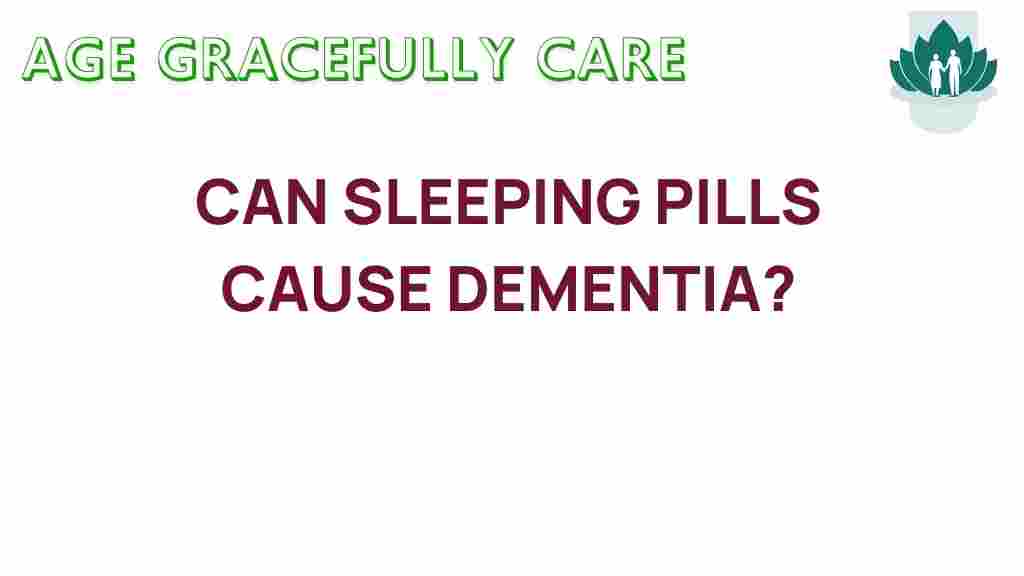Unraveling the Mystery: Can Sleeping Pills Lead to Dementia Risk?
In our fast-paced world, sleep disorders have become increasingly common, leading many individuals to seek out effective sleep aids. However, with the rise in the use of sleeping pills, a growing body of research has begun to explore the potential link between these medications and dementia risk. In this article, we will dive deep into the concerns surrounding sleeping pills, their impact on cognitive health, and the implications for aging populations.
Understanding Sleeping Pills
Sleeping pills, also known as sedative-hypnotics, are medications designed to help individuals fall asleep or stay asleep. They are typically prescribed for short-term use to address issues such as:
- Insomnia
- Sleep apnea
- Chronic pain that disrupts sleep
- Other sleep disorders
While these medications can offer immediate relief, their long-term effects on mental health and cognitive function are increasingly under scrutiny.
The Connection Between Sleeping Pills and Cognitive Decline
Research has established that the use of certain sleeping pills may be associated with an increased risk of dementia. A study published in *JAMA Network Open* found that individuals over the age of 50 who regularly took sedative-hypnotics had a higher incidence of cognitive decline compared to those who did not.source The potential mechanisms behind this association include:
- Brain Chemistry Alteration: Sleeping pills can alter neurotransmitter levels, impacting memory and cognitive processing.
- Dependency and Tolerance: Regular use can lead to tolerance, requiring higher doses for the same effect, which may exacerbate cognitive issues.
- Withdrawal Symptoms: Stopping the use of sleeping pills can lead to withdrawal symptoms, including increased anxiety and disrupted sleep patterns, further impacting cognitive health.
Health Concerns Related to Sleeping Pills
While the primary purpose of sleeping pills is to promote sleep, they come with a range of health concerns, particularly in older adults. These concerns include:
- Medication Side Effects: Common side effects of sleeping pills can include dizziness, confusion, and memory issues, all of which are concerning for individuals at risk of dementia.
- Increased Fall Risk: Sedation can lead to impaired coordination and an increased risk of falls, which can result in serious injuries for older adults.
- Interaction with Other Medications: Many older adults take multiple medications, increasing the risk of harmful interactions that can affect cognitive function.
Who is Most at Risk?
While anyone can experience cognitive decline, certain populations are at greater risk when using sleeping pills:
- Aging Individuals: As people age, their bodies metabolize medications differently, making them more susceptible to side effects.
- Those with Pre-existing Cognitive Impairment: Individuals already experiencing mild cognitive decline may find that sleeping pills exacerbate their condition.
- People with Sleep Disorders: Those with chronic sleep issues may be more likely to rely on medications, increasing their exposure to potential risks.
Alternatives to Sleeping Pills
For those concerned about the potential link between sleeping pills and dementia risk, there are several alternative approaches to managing sleep disorders:
- Cognitive Behavioral Therapy for Insomnia (CBT-I): A structured program that helps individuals address the thoughts and behaviors contributing to sleep problems.
- Natural Sleep Aids: Herbal supplements such as melatonin, valerian root, or chamomile may promote better sleep without the cognitive risks associated with prescription medications.
- Sleep Hygiene Practices: Implementing good sleep hygiene, such as maintaining a regular sleep schedule, creating a restful environment, and minimizing screen time before bed, can significantly improve sleep quality.
Step-by-Step Process for Safer Sleep Management
If you or a loved one are considering alternatives to sleeping pills, here’s a step-by-step process to promote better sleep health:
- Consult Your Healthcare Provider: Discuss any sleep issues and the potential risks of current medications.
- Explore Non-Medication Options: Consider therapies like CBT-I or lifestyle changes.
- Implement Sleep Hygiene: Create a comfortable and calming bedtime routine.
- Monitor Progress: Keep a sleep diary to identify patterns and improvements.
- Review Regularly: Schedule follow-up appointments to discuss ongoing sleep quality and cognitive health with your healthcare provider.
Troubleshooting Sleep Issues
If you encounter challenges while trying to improve your sleep, consider the following troubleshooting tips:
- Identify Stressors: Journaling or meditative practices can help identify and mitigate stressors affecting sleep.
- Limit Caffeine and Alcohol: Reducing intake of stimulants and depressants can enhance sleep quality.
- Physical Activity: Regular exercise can improve sleep quality but avoid vigorous workouts close to bedtime.
- Consider Professional Help: If sleep issues persist, consult a sleep specialist for personalized guidance.
Conclusion
The question of whether sleeping pills can lead to dementia risk is complex and multifaceted. While they provide immediate relief for sleep disorders, the potential long-term impacts on cognitive health cannot be ignored. By understanding the side effects, health concerns, and risks associated with these medications, individuals can make informed decisions regarding their sleep health.
Alternatives exist that can help improve sleep quality without the risks of cognitive decline. Engaging in a holistic approach to sleep management, including lifestyle modifications and behavioral therapies, can lead to better outcomes for mental health and overall well-being as we age.
For more information on sleep disorders and cognitive health, visit the National Sleep Foundation. Always consult with a healthcare professional before making changes to your sleep medication.
This article is in the category Health and created by AgeGracefullyCare Team
